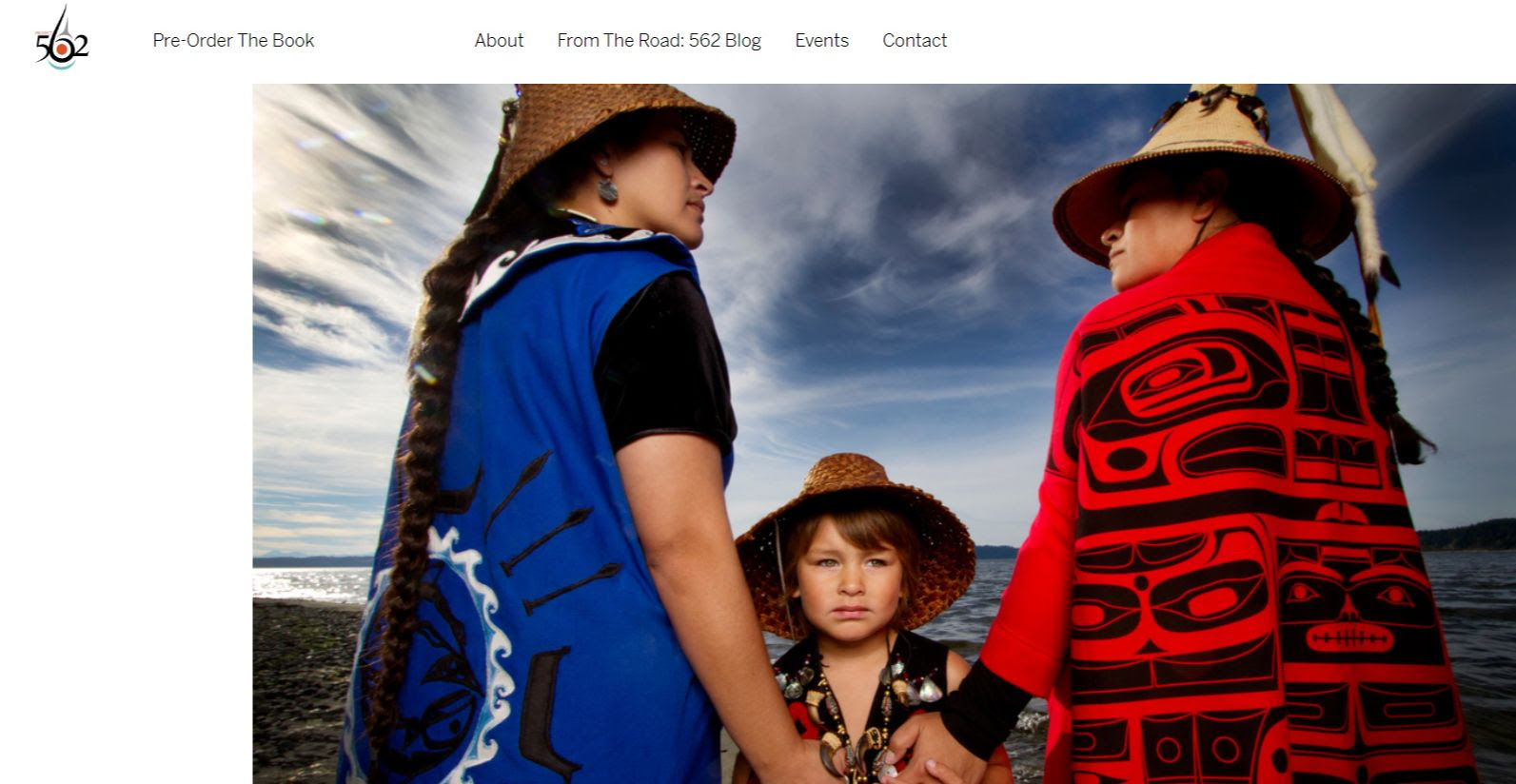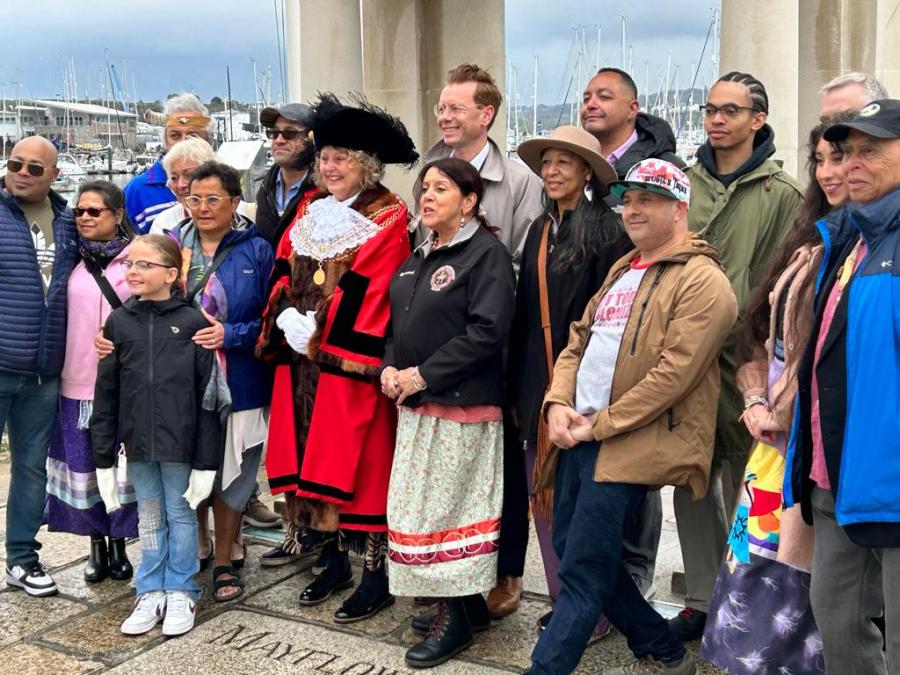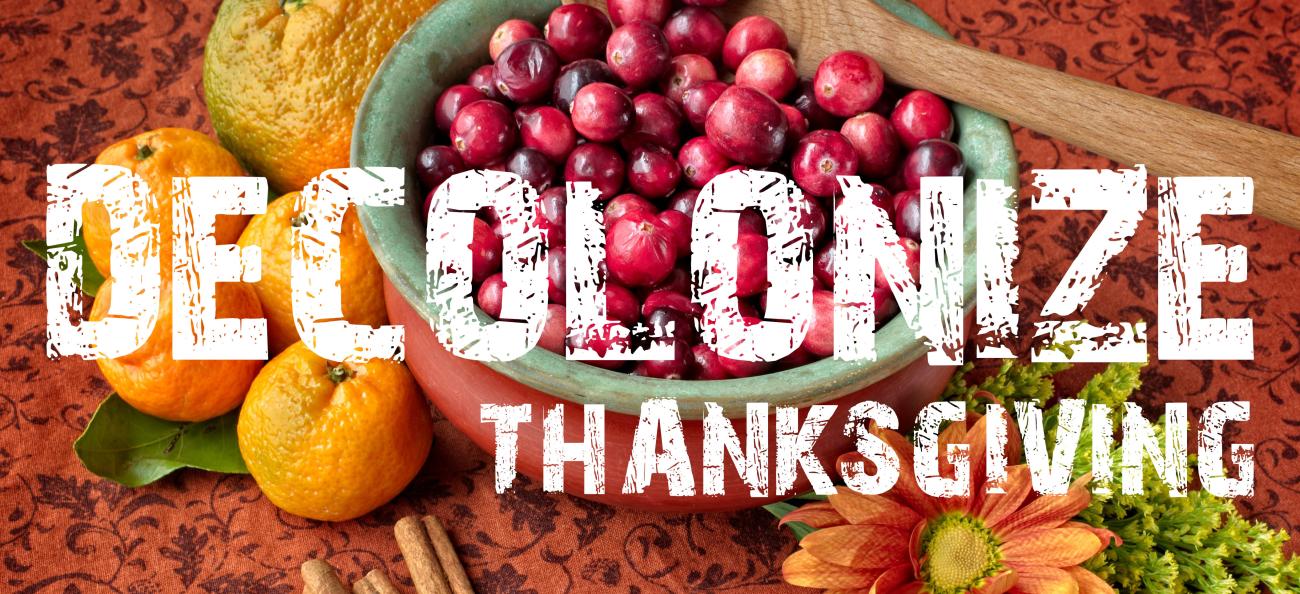
With Native American Heritage Month well underway and Thanksgiving/National Day of Mourning occurring tomorrow, it is an excellent time to celebrate Indigenous Peoples’ brilliance, honor and acknowledge truth in history, recognize whose land we are on, and work towards true allyship. We call upon our Cultural Survival community to learn from Indigenous Peoples and their true account of this federal holiday, confront settler mythologies of this country's history, understand how American colonialism and imperialism continue to impact Indigenous communities today, and to take steps towards true reconciliation. Explore the many ways to honor and celebrate Indigenous Peoples every day.
1. Learn the Real History of Thanksgiving.
Read and share these articles!
- Thanksgiving Is A Day of Mourning for Many Indigenous Communities by Kisha James (Aquinnah Wampanoag and Oglala Lakota) and Mahtowin Munro (Oglala Lakota)
- Our Ancestors Celebrated Thanksgiving 13 Times a Year: Demystifying Thanksgiving by Chenae Bullock (Shinnecock)
- The First Thanksgiving: Separating Myth From Fact by Ruth Hopkins (Dakota and Lakota)
- Decolonizing Thanksgiving and Reviving Indigenous Relationships to Food by NDN Collective
- Decolonizing Thanksgiving by Bioneers
- The Thanksgiving Tale We Tell Is a Harmful Lie. As a Native American, I’ve Found a Better Way to Celebrate the Holiday by Sean Sherman, the ‘Sioux Chef’
- The Wampanoag Side of the First Thanksgiving Story
- Pilgrim myths: Don’t believe everything your kindergarten teacher told you
- What you learned about the ‘first Thanksgiving’ isn’t true. Here’s the real story
- The True, Indigenous History of Thanksgiving by Alexis Bunten
- Thanksgiving Promotes Whitewashed History, So I Organized Truthsgiving Instead
- Decolonizing Thanksgiving: A Toolkit for Combating Racism in Schools
- Rethinking Thanksgiving Tool Kit by Indigenous Solidarity Network
For Kids:
- Keepunumuk: Weeâchumun's Thanksgiving Story
- Plimoth Thanksgiving
- 7 Thanksgiving books for kids written from the Native perspective
- How to talk to little kids about Thanksgiving, explained by a Native American children's author
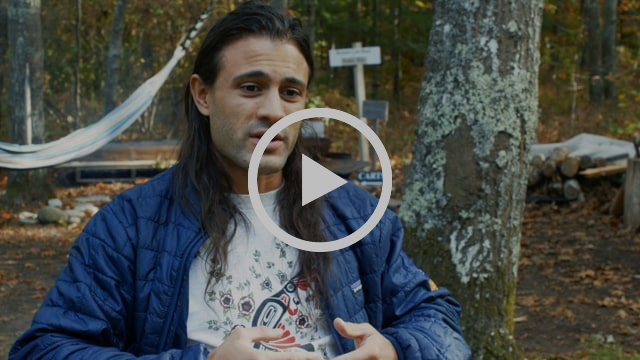 Watch Thanksgiving: A Wampanoag Perspective
Watch Thanksgiving: A Wampanoag Perspective 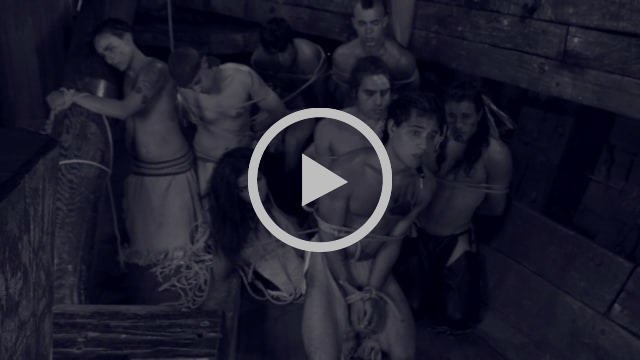
2. Watch Rethinking Thanksgiving.
3. Learn about Land Acknowledgement, Traditional Lands, and Treaties.
If you’re unsure about the Indigenous Peoples' land you are living on, you can search your location using Native Land. The Native Governance Center shares this handy Guide to Indigenous Land Acknowledgement.
Other resources include Tribal Nations Maps, a source of hard copy maps that identify the traditional lands of Tribes in North and South America and the Caribbean, and the Smithsonian’s digital archive of treaties made between the United States and Indigenous Tribes.
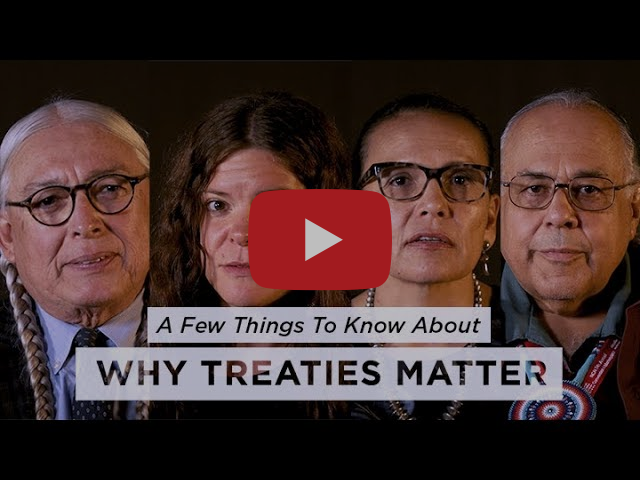 The United States has ratified more than 370 treaties with Native American Nations. Yet, many Americans know little about the treaties that shaped and continue to impact the country today.
The United States has ratified more than 370 treaties with Native American Nations. Yet, many Americans know little about the treaties that shaped and continue to impact the country today.
4. Support Indigenous-led Nonprofits.
Support Native organizations in your area who are working hard to improve the health, well-being, livelihoods and to uphold the rights of Native Americans across Indian country.
In Cambridge MA, where we are headquartered on Massachusett land, we partner with Native American Indian Center of Boston and United American Indians of New England, and support Eastern Woodland Rematriation. Also show your support for the Wôpanâak Language Reclamation Project, Native Land Conservancy, Wampanoag Trading Post and Gallery, The Massachusett Tribe at Ponkapoag, and Massachusetts Center for Native American Awareness.
5. Listen to Indigenous Voices.
 Landback - A Conversation with Demetrius Johnson
Landback - A Conversation with Demetrius Johnson
Demetrius Johnson (Diné) is a #LandBack Organizer at Rapid City, South Dakota-based nonprofit NDN Collective. Originally from Tółaní, Ganado, Arizona, Johnson began community organizing shortly after being elected President of Kiva Club around the disastrous Gold King Mine spill that affected his people in 2015. Cultural Survival’s Indigenous Rights Radio Coordinator, Shaldon Ferris (Khoisan), recently spoke with Johnson about his work on NDN Collective’s #LandBack

Kenneth Deer: Traditional Knowledge Is Very Important To Combat Climate Change
Cultural Survival speaks to Kenneth Deer (Mohawk) about the importance of Traditional Knowledge in mitigating and fighting climate change. 
6. Decolonize Your Dinner.
Native chefs have created a culinary movement with the goal of getting Indigenous people to honor their ancestors through their dietary choices. Bring Native American dishes to the dinner table.
- Native foods educator Valerie Segrest on marking Thanksgiving with respect
- Her Tribe Fed the Pilgrims. Here’s What She Wants You to Know About Indigenous Food
- How to Decolonize Your Thanksgiving Dinner
- This Thanksgiving, Make These Native Recipes From Indigenous Chefs
7. Celebrate Native Creators.
Support Native Authors, Filmmakers, Musicians, Poets, and Artists!
- 10 Children's Books by Native Writers
- Must Read Books by Indigenous Authors
- 40 Best Native American Authors to Read in 2022
- 20 Best Books by Native American Authors to Add to Your Bookshelf
- 15 Native American Movies & TV Shows to Watch and Learn About Indigenous History and Culture
8. Buy Native This Holiday Season. #ShopIndigenous
If you want to support Indigenous businesses but are unsure of the line between cultural appropriation and appreciation, check out Cultural Survival’s cultural appropriation resource list. Check out our Cultural Survival Bazaar Artist Directory. For a wide array of services and goods, check out NativeWeb's database of Native-owned businesses.
- 35 Indigenous and Native-Owned Clothing Brands to Shop Now and Always
- More Native Businesses to Support
9. Attend an Event.
- 52nd Annual National Day of Mourning
November 24, 2020, 12:00PM ET, Coles Hill, Plymouth, MA.
Live stream at: http://www.uaine.org/default.htm#ndom
- Annual Alcatraz Thanksgiving Sunrise Gathering
November 24, 2022, 5:30 am – 8:00 am MST
https://www.iitc.org/event/indigenous-peoples- thanksgiving-sunrise- gathering/
10. Share Positive Representations of Native People.
Illuminative and Project 562 showcase contemporary Native America with grace, beauty, and style.
Check out Reservation Dogs on Hulu, Rutherford Falls on Peacock, Dark Winds on AMC, Mohawk Girls on Peacock, and more.
11. End Racist Native Mascots in Sports.
There are still more than 1,000 high school, university, and professional teams that continue to have Native American mascots. Though changes have been made at the high school and college levels, at the professional level there has been virtually no change. Start the change in your community. Check out our Abolishing Racist Native Mascots: A Toolkit for Change. Get involved: #NotYourMascot, #ChangeTheName, and #NoHonorInRacism.



